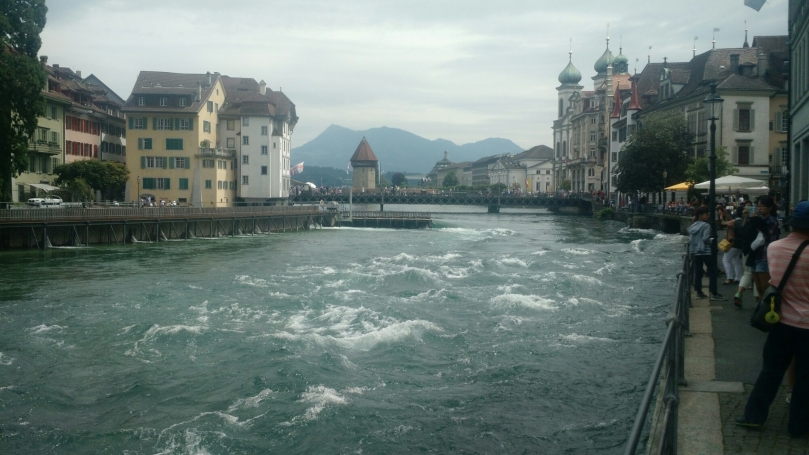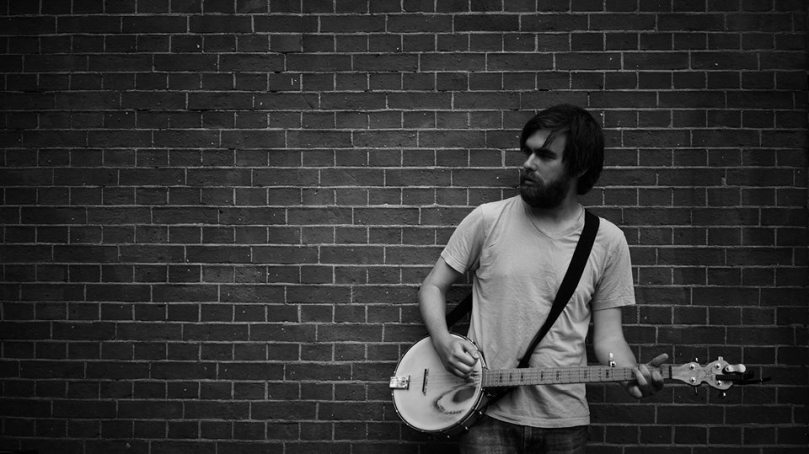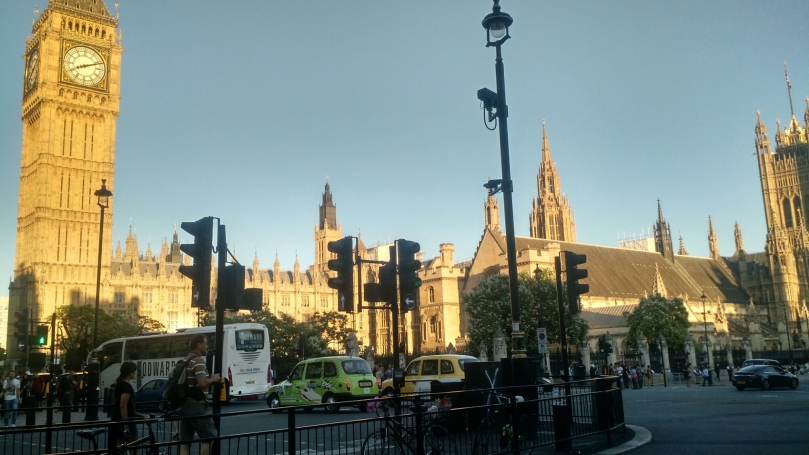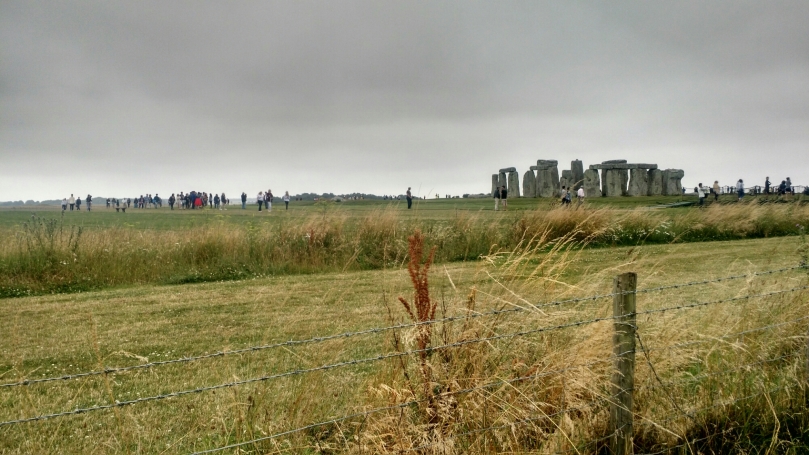The loose plan Andrew and company brought to Spain was to start in Barcelona, move south down the coast towards the southern tip of Spain, take a ferry into Morocco, explore there for a bit, then cross back into Spain and spend the last few days in Portugal before flying home from Madrid. My own plan was to meet Jane, the wee bonnie lass from Glasgow, in Valencia after two weeks of travelling with Andrew and the dudes. Valencia is the next major city on the southward journey from Barcelona, so it was our next destination.
We’d talked about hitchhiking, how I’d been doing it pretty successfully, and, although it was supposedly more challenging in Spain than in most European countries, the guys were willing to give it a try. The three to four hour drive from Barcelona to Valencia would be a good distance to try it out. So we left our AirBnB accommodation and followed my route to one of Hitchwiki’s recommended hitchhiking spots. This meant taking a bus to a train to another train, a lengthy process that was made lengthier by my following the wrong set of directions at first, and then walking a mile on a hot, dusty road (after climbing around on an overgrown, scrap-metal-strewn roadside path for a bit due to unclear instructions), finally ending up at a gas station rest area on the side of the highway bypass at 2:00 in the afternoon – a couple hours later than I would have liked.
Weary and sweaty and hungry and thirsty and starting to regret this whole thing, we took a few minutes to regroup. There were two other hitchhikers who had taken the same train as us, young dudes from I can’t remember which Baltic state. Since I hadn’t yet replaced my marker since losing it in England (the craft supply store I checked in Spain was closed for its owner’s summer holiday), we were grateful to borrow theirs, and made two Valencia signs on scrap cardboard outside the gas station.
Leaving the Baltic dudes to hitchhike from the rest stop exit, Drew and I started thumbing from beside the restaurant/convenience store while Andrew and Madison went inside to get food. Finding a driver who would take all four of us together wouldn’t have been impossible, but was so unlikely that it would have been absurd to count on it. Expecting to wait maybe an hour, it was fun to be offered a ride in hardly 20 minutes. We were taken to Tarragona, a town almost an hour south of Barcelona, by a young Catalan couple escaping the Barcelona’s tourist-crammed beaches for quieter ones. They were very friendly and informative, and their English was pretty good. I asked them to drop us off at a rest stop just north of Tarragona. This one was much the same as the last, except now we weren’t competing with other hitchhikers. We walked to the rest area exit and held up our signs, and were picked up in mere seconds by the first truck that passed us by.
Our second driver of the day was a pro trucker who had been on the road for several days and was finally coming home to his family in Valencia. Yep, he was taking us all the way there. He spoke almost no English, but Drew’s command of basic Spanish was enough that we could communicate most ideas we tried to share, given enough time and the right tools – our driver using Google Translate on his phone for a word we were struggling with, me sometimes pitching in with a word I recognized from high school Latin. He told us about places to see and things to eat in Valencia, and pointed out ancient watchtowers on distant hills – this area of Spain used to use a Gondor-esque watchtower network to protect the coast from Moorish invasion, when it wasn’t a Moorish territory. At least, I think that’s what he was saying.
It was a beautiful and very amiable drive. He took us to a gas station on the far side of Valencia. From there, Drew and I walked a mile or two, past little industrial areas and strange rickety houses and tiny farms, then caught a bus, meeting our AirBnB host at the arranged time. We were staying in a spacious, air-conditioned apartment, with four beds and two bathrooms and a fully equipped kitchen. It was early evening, and we had arrived with time to spare, an ideal day of hitchhiking. Unfortunately, Andrew and Madison did not have Drew’s beginner’s luck.
They didn’t see Drew and me catch our quick ride out of Barcelona, but we kept them updated via text. When we got our second lift, they were still at the first place. I told them what an easy time we’d had at the second rest area and gave them its location on the map. After maybe two or three hours of waiting (practically American wait times!) they finally got a ride out. You’ll have to ask one of them if you want the full story of their first ride. It involved an immigrant (Moroccan maybe?), thicker language barriers than ever, a car on the brink of catastrophic breakdown, another hitchhiker, and lots of confusion.
Andrew, if you’d like to guest-post about this little adventure, be my guest.
They ended up at the very same place we’d hitched from, on the outskirts of Tarragona. But the first truck that passed them did not pick them up. Neither did any other vehicle that night. They got some rude gestures and honks, but no hospitality. As the evening grew late, they got discouraged, then desperate, then gave up, electing to spend a few Euros for a guarantee than rather than hold onto the dwindling hope of a ride offer. They walked miles along a meandering, barely-there Google Maps walking route only to miss the bus they’d meant to catch and have to wait for hours.
In Valencia, Drew and I went shopping for groceries, intending to feed Andrew and Madison some home-cooked dinner when they arrived, then played games and had nice conversation when we learned that they wouldn’t come in until past midnight. We had just followed through on a half-joking challenge made in Barcelona to see who could name more of the original 151 Pokemon from memory when Andrew and Madison finally arrived, exhausted and drunk as lords. Given the extreme disparity between our luck and theirs, I would have understood if they’d been depressed or bitter, but, in a testament to their resilience and will to enjoy this trip, they had discovered a rich mine of humor in the absurdity of the day’s events. They were just ready to laugh it off, sleep hard, and live on.
We hitched at the same time, from the same places, with the same general looks and attitudes. There’s really no accounting for our success and their failure except by luck. This is the only time I’ve had two test runs of the same hitching scenario, and with such different results, it’s easy to imagine that all of the strategy and rationale I’ve developed from 150 hitchhikes has just been a futile attempt to apply logic to chaos. Maybe every single time I’ve stood with my thumb out, the results could have varied so wildly with just the slightest shift of luck.
As for the future, the group reached a consensus quickly: though hitchhiking had its merits, with their limited time here and the difficulty of hitching in Spain, it just wasn’t worth the trouble this time.
We spent the next two days in Valencia, longer than we’d initially planned, adding some extra time to recuperate from Madison and Andrew’s hitching day from hell. Valencia is a lot like Barcelona, but smaller, more compact, and a bit less global. There’s a pretty upbeat downtown area with some older architecture and cool stuff, and the beaches are perfect without being overwhelming. A river that used to run through the center of the city has long since been diverted, and the riverbed has been reformed into a park that stretches across the city center towards the ocean; it was there that we ran into Natasha, the Calvin College graduate with whom I Couchsurfed in Vancouver last year. I had no idea she was traveling, and happening upon her in a park in Valencia was a disorienting surprise, one of those things whose massive unlikeliness rocks your innate sense of probability to its core.
We talked about maybe hanging out as a group in the evening, but Natasha’s travel schedule didn’t end up having space for it. Instead we hung out with a group of Italian travelers we’d met over breakfast at our AirBnB in Barcelona. They were in Valencia now, and one of us must have grabbed a phone number. We met Marcello, the twin sisters Marianna and Susanna, and Simona. They were great fun to talk to. Spanish was neither their first nor second language, and English was even further down the list, but after the guys made a valiant effort to chat with them in Spanish, the conversation settled into simple English, with Marcello and Simona taking the lead and helping Marianna and Susanna along when their English couldn’t cut it. Sometimes I feel a bit guilty about only knowing English and making everyone else speak it, and this was one of those times. But we had fun. Even with a limited vocabulary, a bunch of Americans and Italians have a lot to talk about. After the usual topics of travel, cultural differences and stereotypes, and American politics were thoroughly explored, we found other surprising little islands of common ground, like a love for The Simpsons, or a protracted conversation about what it’s like to study to be a judge in Italy.
We spent our third night in Valencia in a new AirBnB closer to the beach, where we met a couple French art students and some German travellers. Later the French travellers met us at the beach, where we were spending most of our afternoon, and when our Italian friends also joined the circle, we started feeling really cool. It’s fun to bring people together, and it felt nice for our little egos that people actually wanted to hang out with us. Someone asked me to play the banjo, and a few random young passersby joined the group too. I don’t remember any of their names or stories, but they were nice. Of all the beaches I’ve travelled to, particularly on this trip, this was the first one that seemed so friendly, so open, in the way that a good British pub is more open than the average American bar. People aren’t expected to stick to their friends as much. Or maybe it was just the banjo and our awkwardly friendly American charisma.
Valencia itself may not have made a strong impression on me, but I remember those days warmly. Something about Valencia lent itself to making connections – travellers meeting travellers, old pals appearing out of nowhere, communal beach songs. I have a feeling we could have found connections like those in any Spanish city if we’d just known how to look for them. Maybe this was the city where we learned how.

















